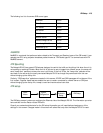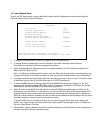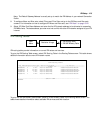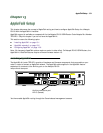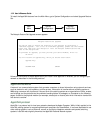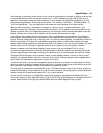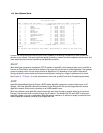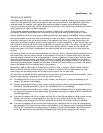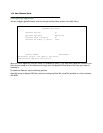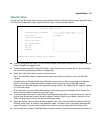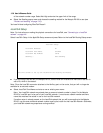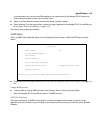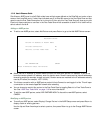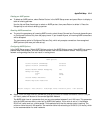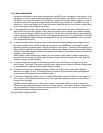AppleTalk Setup 13-5
Routers and seeding
To configure AppleTalk networks, you must understand the concept of seeding. Seeding is the process by which
routers (or more specifically, router ports) agree on what routing information is valid. AppleTalk routers that
have been reset, for example, must decide what zones and network numbers are valid before they begin
routing. In this case, a router may use the information it has stored, or use information it receives from another
router, depending on how it has been configured.
To help ensure agreement between routers on a network, a seed router is configured with the correct
information, and other routers obtain their information from that router when they are turned on or reset.
Routers commonly use one of three types of seeding procedures: hard seeding, soft seeding, and non-seeding.
Hard seeding: When a router that uses hard seeding is turned on or reset, it requests network number and
zone name information from any existing routers on the networks it will serve. If no other routers reply, the
router uses the network numbers and zone names specified in its own configuration. If other routers reply, and
their information matches the router’s own configuration information, the result is the same—the router uses
the values in its own configuration. However, if other routers provide network numbers or zone names that
conflict with those in the router’s configuration, the router disables any of its own ports for which there are
conflicts.
Soft seeding: When a router that uses soft seeding is turned on or reset, it requests network number and zone
name information from any existing routers on the networks it will serve. If no other routers reply, the router
uses the network numbers and zone names specified in its own configuration. If other routers reply, the router
uses the information they provide, regardless of whether or not there are conflicts between the information
received and its configured information. Once a soft- or hard seeding router begins to route, it can serve as a
seed router, providing network number and zone name information to other routers upon request. The default
state of the Netopia R3100’s AppleTalk ports is soft seeding.
Non-seeding: When a router using non-seeding is turned on or reset, it requests network number and zone
name information from any existing routers on the networks it will serve. For any network where no other
routers reply, the non-seeding router will not have any active ports until the next reset.
You should set the Netopia R3100’s seeding action to work best in your particular network environment. These
scenarios may guide you in deciding how to set the router’s seeding:
■ If the Netopia R3100 is the only router on your network, you must set it to either hard seeding or soft
seeding. The default is soft seeding.
■ If there is another active router on your network, and you want that router to configure the Netopia R3100’s
EtherTalk or LocalTalk parameters, you can set the Netopia R3100 to non-seeding.
■ If there is another active router on your network, you could set the Netopia R3100 to be soft seeding if you
are unsure that the second router would always be available to configure the Netopia R3100’s EtherTalk or
LocalTalk parameters.
■ If you want the Netopia R3100 to configure the EtherTalk or LocalTalk parameters of other routers on your
network, you must set it to hard seeding. In this case, the other routers must be soft seeding or
non-seeding, and the Netopia R3100 must already be active when those other routers are rebooted.
■ If you want the Netopia R3100 and all other routers on your network to use only their own configurations,
set the Netopia R3100 and all other routers to hard seeding. In this case, any router (including the Netopia
R3100) that is rebooted will not begin routing if it detects a routing conflict between itself and any other
router. This last scenario could be useful for detecting and locating routing errors on your network.



